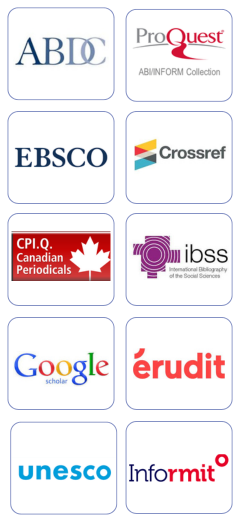‘Ideactionaries’: Those Who Imagine Anything and Create the Impossible
DOI:
https://doi.org/10.55482/jcim.2023.33540Abstract
The purpose of this paper is to make the reader reflect on the transition from working to ideating. Working leads people to forget themselves and bury their heads in the sand, wrote the humanist Aldous Huxley (1894-1963) in 1928. In 1936, the writer and poet Cesare Pavese (1908-1950) advised in his collection of poems Lavorare stanca (Hard Labor) to take a closer look at the representations of men at work. Huxley and Pavese have led us forward to when ideactionaries will succeed workers. These translate ideas into action, devising revolutionary ways of designing and operating to deliver products and services and seeing the world. Theirs is meant to be a liveable, collective, co-creative (they transfer thoughts from one mind to another), constructive, transdisciplinary human experience. It must enrich the culture of intuition and imagination, of empathy towards society and the planet. It must educate young people to be guided by the good and to incorporate communication into action through vision, design of lived experience, mental models and meaningful metaphors.
It is up to scholars to take charge of this vision, even critically, so that the new generations can attend classrooms and research workshops modelled as a Renaissance Bottega (workshop). There, pupils were co-creators rather than mere executors of tasks assigned from above and generators of cognitive conflicts that do much to abrogate entrenched rules.
References
Bush, V. (1945). As We May Think. The Atlantic. Formica. P. (2016). “The Innovative Coworking Spaces of 15th-Century”, Harvard Business Review, April 27.
Formica, P. (2022). Ideators: Their Words and Voices. Bingley, UK: Emerald Publishing.
Huxley, A. (1928). Point counter Point. Seattle, WA: Avon.
Pavese, C. (1986). Hard Labor, in: The selected works of Cesare Pavese, New York, NY:
Farrar, Straus and Giroux. Original Edition: Lavorare stanca. Firenze: Edizioni di Solaria, 1936.
Verne, J. (1887). Robur the Conqueror (also known as The Clipper of the Clouds).New York, NY: Gilberton. Original Edition: Robur le Conquérant. Paris: Hetzel, 1886.
Tommaseo, N. (1985). Giovan Battista Vico e il suo secolo, Palermo: Sellerio. Torino: Loescher.
Downloads
Published
How to Cite
Issue
Section
License
Papers accepted become the copyright of the journal, unless otherwise specifically agreed.



